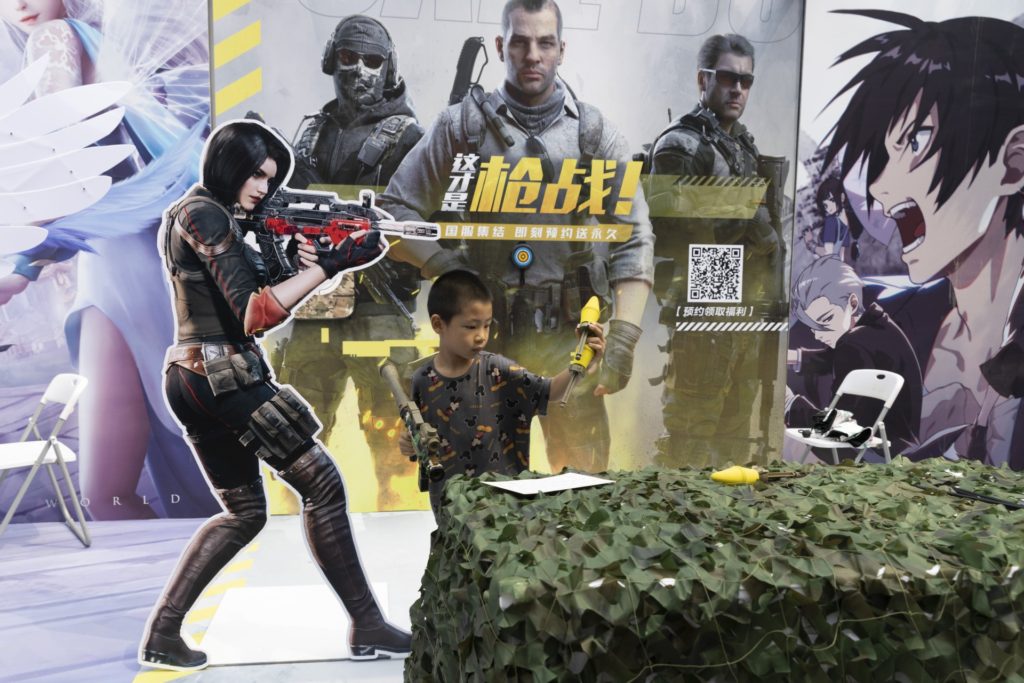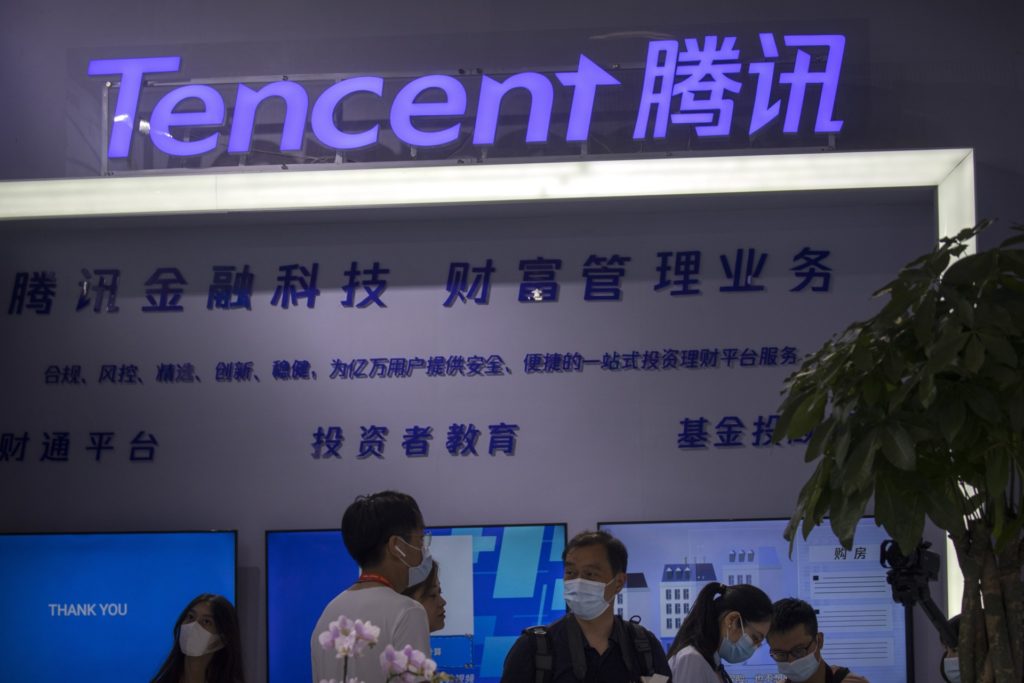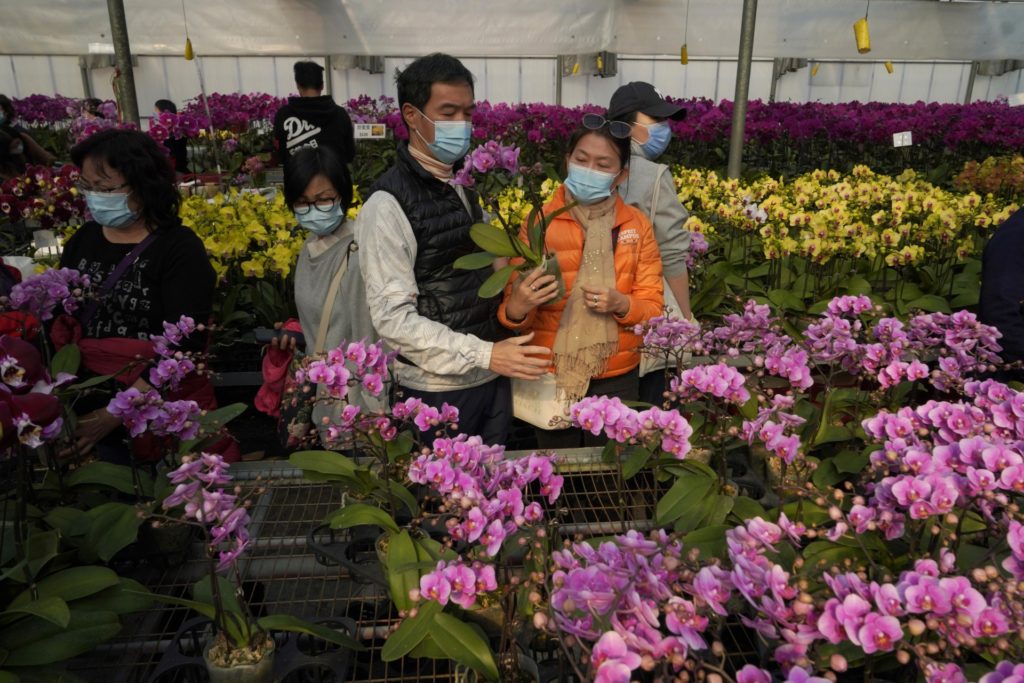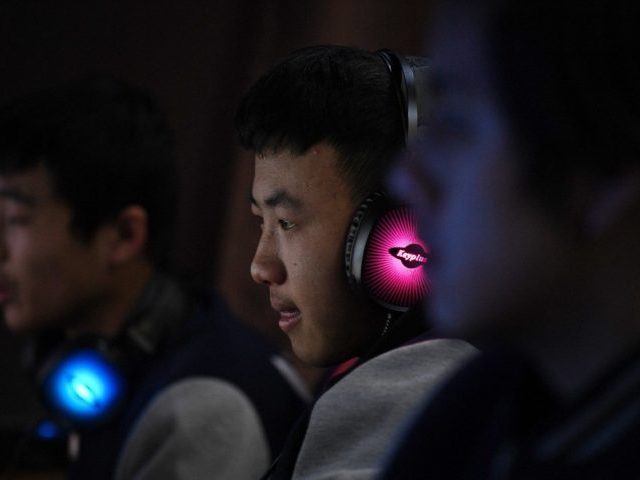The South China Morning Post (SCMP) reported on Thursday that Chinese regulators will not approve any new online games for at least a month, following a month in which approval has been granted very slowly. The news caused gaming industry stocks to slide in markets around the world, as investors feared losing access to the immense Chinese market.
The Chinese Communist Party (CCP) launched a regulatory crusade against online video games over the summer, comparing them to addictive drugs and demanding changes to the way they are administered and sold.
At the end of August, the Chinese government banned children 18 and under from playing online games for more than one hour a day, three days a week, plus an extra hour on legal holidays. Game companies were required to devise registration systems that would identify all gamers, flag those who are 18 and under, and monitor how long they played.

A child plays with a toy gun during a promotion for online games in Beijing on Saturday, August 29, 2020. (AP Photo/Ng Han Guan)
Rules implemented in 2019 already limited minors to playing for no more than 90 minutes per day, but tracking and enforcement were not as aggressive as the new, tighter limits.
According to the SCMP on Thursday, the Chinese government will now halt approval for new online games entirely, for at least a month and possibly longer:
That strategy emerged after a meeting on Wednesday called by regulators, led by the publicity department of the Chinese Communist Party and gaming watchdog the National Press and Publication Administration (NPPA), to discuss with representatives from Tencent and NetEase how they will implement Beijing’s new restrictions on video gaming for minors.
The licensing process for new games had already slowed down for more than a month, according to a person who was briefed about the meeting, but declined to be named because the information is private.
Another person, who was also briefed on the discussions, said new game approvals would be on hold “for a while” because the priority was to “cut the number of new games” and “reduce gaming addiction” in the country, which is the world’s biggest video gaming market. This source, who declined to be named because the matter discussed remains confidential, also described the approval of new games in the first half of this year as being “a bit too aggressive”.
A third person, who attended the meeting, said delays in the licensing process were needed to “ensure a smooth and successful deployment” of measures to reduce gaming addiction in minors.
Tencent and NetEase are among the largest online game producers in China. The stock value of these Chinese gaming giants slipped as each new restriction was announced, even though they claimed only a small fraction of their gaming income comes from children under 16.

In this September 5, 2020 photo, people look at a display from Chinese technology firm Tencent at the China International Fair for Trade in Services (CIFTIS) in Beijing. (AP Photo/Mark Schiefelbein, File)
European and American video game stocks fell by several percentage points on Thursday with the news from China, evan as Tencent and NetEase values dropped by 8% and 13% respectively, and the Hong Kong tech index suffered its worst tumble since July.
“The last gaming approval ‘temporary’ suspension lasted nine months. It impacted the whole sector in terms of growth and valuation compression of stocks,” Neil Campling of Mirabaud in London told Reuters.
If approvals are suspended in China for anywhere near that length of time, it will ruin developers’ plans to release new games in time for the Western holiday season and Lunar New Year, a major shopping season in China. The SCMP’s sources suggested Chinese regulators have not reached a final decision on their strategy yet, and could merely “slow down” approvals instead of halting them entirely.
Campling noted that several large American and European publishers have interests in Chinese companies, or have been attempting to get major game products released in China, most of which have an online component or are played entirely online.

Customers wearing face masks to protect against the spread of the coronavirus, look at pots of Phalaenopsis orchids at one of Hong Kong’s largest orchid farms located at Hong Kong’s rural New Territories on January 14, 2021. (AP Photo/Kin Cheung)
“Electronic Artshad talked about the opportunity for Apex Mobile in China next year, Roblox has talked about China as a major growth engine going forward, and Ubisoft has been working with Tencent to get approval for The Division 2,” he said, naming several big games and publishers.
On the bright side, some analysts suggested the approval freeze and playtime crackdown in China might inspire Chinese gamers to seek alternative entertainment beyond the “Great Firewall,” prompting them to use VPN software to bypass China’s censors and play American and European games.
China’s gaming crackdown is also roiling esports, a parallel industry that involves competitive play of online games, with a considerable amount of prize and endorsement money on the line.
Top esports players say they could not remain competitive by playing only three hours per week, so its huge numbers of teenage players have been effectively swept off the map. Esports players have even shorter careers than real-world athletes, as most of them begin playing competitively in their early teens and retire in their mid-20s.
China is the largest esports market in the world, with about $23 billion in annual revenue. If approval of new online games is significantly delayed or frozen in China, its players would have trouble competing in popular new games released across the rest of the world.

COMMENTS
Please let us know if you're having issues with commenting.